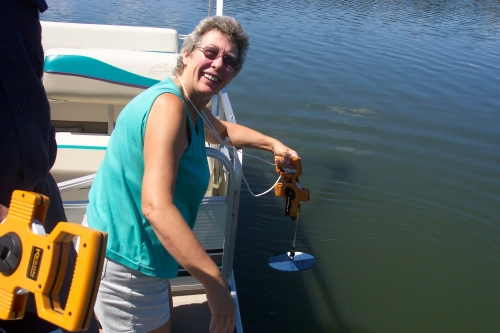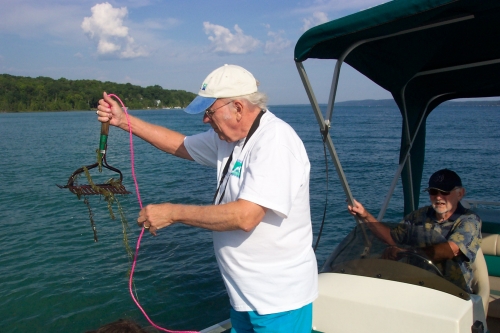Volunteer Lake Monitoring
Cooperative Lakes Monitoring Program
 |
Currently 221 of the over 10,000 lakes in Michigan participate in the CLMP. Check here to see if your favorite recreation spot is on the list. Go to the CLMP websitefor more details about the program and how you can sign up to become a volunteer monitor on your lake!
Exotic Aquatic Plant Watch
|
The Exotic Aquatic Plant Watch, part of the Cooperative Lakes Monitoring Program (CLMP)is a program designed to prevent and control aquatic invasive species. To avoid having a lake invaded and overrun with exotic plants it is necessary to use Integrated Pest Management (IPM) strategies: monitoring, early detection, rapid response, maintenance control and preventive management.
Currently there are more than 20 lakes participating in the Exotic Aquatic Plant Watch Program. For more information and to find out how you can participate, please review the program’s brochure.
Michigan’s Clean Boats Clean Waters
Michigan’s Clean Boats Clean Waters program trains volunteers to show boaters how to inspect their equipment, demonstrating cleaning techniques for boats and trailers and by sharing educational information about invasive species. Unfortunately, invasive non-native plants, fishes and other organisms disrupt aquatic ecosystems. They also interfere with the enjoyment associated with boating and damage recreational watercraft. Volunteers can make a big difference in Michigan’s efforts to prevent the spread of aquatic invasive species from one body of water to another.
For more information about how to become a volunteer or how you can inspect your boating equipment check out their website through Michigan Sea Grant.




 Print
Print Email
Email